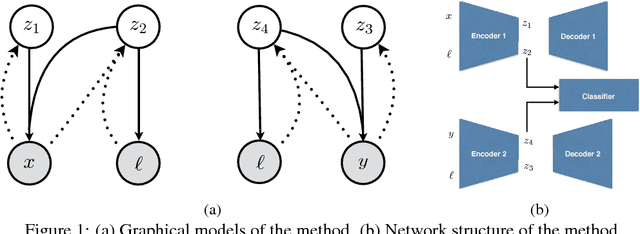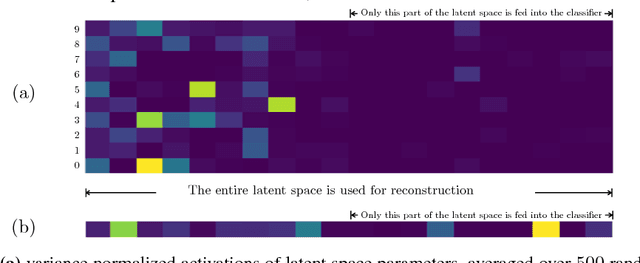JADE: Joint Autoencoders for Dis-Entanglement
Paper and Code
Nov 24, 2017


The problem of feature disentanglement has been explored in the literature, for the purpose of image and video processing and text analysis. State-of-the-art methods for disentangling feature representations rely on the presence of many labeled samples. In this work, we present a novel method for disentangling factors of variation in data-scarce regimes. Specifically, we explore the application of feature disentangling for the problem of supervised classification in a setting where few labeled samples exist, and there are no unlabeled samples for use in unsupervised training. Instead, a similar datasets exists which shares at least one direction of variation with the sample-constrained datasets. We train our model end-to-end using the framework of variational autoencoders and are able to experimentally demonstrate that using an auxiliary dataset with similar variation factors contribute positively to classification performance, yielding competitive results with the state-of-the-art in unsupervised learning.
 Add to Chrome
Add to Chrome Add to Firefox
Add to Firefox Add to Edge
Add to Edge